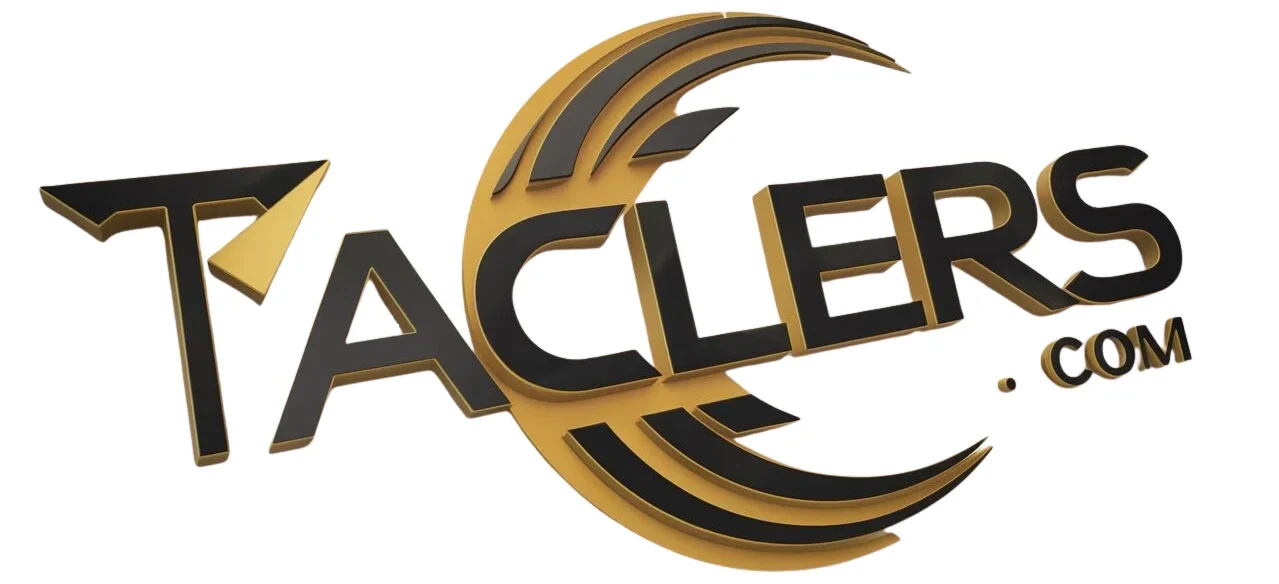Expressing gratitude after medical care is not just a courtesy—it’s a heartfelt acknowledgment of the dedication and expertise that went into your recovery. Whether it’s to your surgeon, the nursing staff, your family and friends, or even your physical therapist, a well-crafted thank you note can strengthen relationships and leave a lasting impact. This comprehensive guide will help you write meaningful thank you notes to those who supported you during your medical journey.
Thank You Note to Your Surgeon
Surgeons play a pivotal role in your recovery, often being the ones who make life-saving decisions and perform complex procedures. A thank you note to your surgeon should reflect your appreciation for their skill, knowledge, and the care they provided during your most vulnerable times.
Acknowledging Expertise and Skill
Surgeons undergo years of rigorous training and possess an unmatched level of expertise. In your thank you note, it’s important to recognize this. Start by acknowledging the complexity of the surgery and the surgeon’s role in ensuring a successful outcome.
Example:
“Dear Dr. [Surgeon’s Name], I cannot express how grateful I am for your exceptional skill and expertise in performing my surgery. Your precision and dedication have given me a second chance at life, and for that, I am forever thankful.”
Personalized Messages
Personalization is key when writing a thank you note. Reflect on specific moments or decisions made by the surgeon that had a significant impact on your experience. Whether it was their calm explanation of the procedure or their reassuring presence, these personal touches make your note more meaningful.
Example:
“Your explanation of the procedure beforehand truly put my mind at ease. Knowing I was in such capable hands made all the difference. Thank you for your compassion and understanding during such a critical time in my life.”
Expressing Relief and Gratitude
Undergoing surgery can be an incredibly stressful experience. In your thank you note, express the relief and gratitude you felt after the procedure. This not only highlights the positive outcome but also shows your appreciation for the surgeon’s role in achieving it.
Example:
“The relief I felt when I woke up and learned that the surgery was a success is indescribable. I am so thankful for your expertise and the care you took to ensure everything went smoothly. Your work has given me a new lease on life.”
Thank You Note to the Nursing Staff

Nurses are often the unsung heroes of healthcare, providing around-the-clock care and emotional support. A thank you note to the nursing staff should emphasize their compassion, kindness, and the critical role they played in your recovery.
Appreciating Compassion and Care
Nurses are the backbone of patient care, often going above and beyond to ensure your comfort and well-being. In your thank you note, highlight their compassionate nature and the care they provided during your hospital stay.
Example:
“To the wonderful nursing staff at [Hospital Name], your kindness and compassion made my hospital stay much more bearable. Every time you checked in on me, offered words of encouragement, or simply listened to my concerns, it made all the difference in my recovery.”
Highlighting Specific Acts of Kindness
Personalizing your thank you note by mentioning specific acts of kindness can make it even more meaningful. Whether it was holding your hand during a tough moment, being gentle during difficult procedures, or simply offering a smile, these moments should be acknowledged.
Example:
“I’ll never forget how [Nurse’s Name] held my hand during that difficult procedure. It may have seemed like a small gesture, but it meant the world to me. Your warmth and care truly made a difference.”
Group vs. Individual Thanks
Deciding whether to thank the entire nursing team or individual nurses can be challenging. If specific nurses stood out to you, it’s worth mentioning them by name. However, a general thank you to the entire team can also be appropriate if everyone played an equal role in your care.
Example:
“I would like to extend my deepest thanks to the entire nursing team at [Hospital Name]. Each one of you played a crucial role in my recovery, and I am grateful for the care and attention you provided every single day.”
Thank You Note to Family and Friends for Their Support
Your family and friends are often your strongest support system during a medical journey. A thank you note to them should reflect your appreciation for their emotional and physical support during your recovery.
Recognizing Emotional and Physical Support
Family and friends provide unwavering support during difficult times. Whether they visited you in the hospital, helped with daily tasks, or simply offered a listening ear, it’s important to acknowledge the role they played in your recovery.
Example:
“To my dear family and friends, your unwavering support during my recovery was a beacon of light in a challenging time. From the daily visits to the encouraging words, you all played a crucial role in my healing process. I am so grateful for each one of you.”
Specific Contributions
Thanking your loved ones for specific contributions shows that you noticed and appreciated their efforts. Whether it was driving you to appointments, cooking meals, or simply being there, these actions made a significant impact on your recovery.
Example:
“Thank you, [Name], for driving me to all of my appointments and ensuring I had everything I needed. Your support made this journey so much easier, and I can’t thank you enough for your help.”
Expressing Ongoing Gratitude
Your gratitude for the support of family and friends doesn’t end when the recovery does. In your thank you note, express that their support continues to be appreciated, even after the toughest times have passed.
Example:
“Even though I’m on the road to full recovery, I continue to be grateful for the support you all provided. Your love and care have meant the world to me, and I’ll never forget the kindness you’ve shown.”
Thank You Note to Your Caregiver
Caregivers often take on a significant burden, providing day-to-day assistance during your recovery. A thank you note to your caregiver should acknowledge their dedication, personal sacrifices, and the critical role they played in your healing process.
Acknowledging Day-to-Day Assistance
Caregivers are there for you day in and day out, helping with everything from personal care to emotional support. Your thank you note should recognize the day-to-day assistance they provided and how it contributed to your recovery.
Example:
“Dear [Caregiver’s Name], I want to thank you from the bottom of my heart for the daily care and support you provided during my recovery. Your patience, kindness, and dedication helped me through the toughest days.”
Mentioning Personal Sacrifices
Caregivers often make personal sacrifices to ensure your comfort and recovery. Whether they rearranged their schedules, missed out on personal time, or made other sacrifices, it’s important to acknowledge these in your thank you note.
Example:
“I know you gave up a lot to be by my side during this time, and I am so grateful for your sacrifices. Your willingness to put my needs above your own did not go unnoticed, and I appreciate everything you’ve done for me.”
Offering Specific Examples
Highlighting specific examples of how your caregiver made your life easier or more comfortable adds depth to your thank you note. Whether it was preparing your favorite meals, helping with physical therapy exercises, or simply being there when you needed a friend, these examples make your note more personal and heartfelt.
Example:
“Thank you for always knowing just what I needed, whether it was a warm meal, a comforting conversation, or help with my exercises. Your care made my recovery so much easier, and I am forever grateful.”
Thank You Note to Your Physical Therapist
Physical therapists are instrumental in helping you regain strength, mobility, and confidence after surgery or injury. A thank you note to your physical therapist should acknowledge their efforts in guiding you through the rehabilitation process.
Recognizing Efforts in Rehabilitation
Physical therapy can be a challenging and often frustrating process, but your therapist is there to guide you every step of the way. Your thank you note should recognize their efforts in helping you achieve your rehabilitation goals.
Example:
“Dear [Physical Therapist’s Name], I cannot thank you enough for your dedication and encouragement throughout my rehabilitation. Your expertise and support were instrumental in helping me regain my strength and confidence.”
Celebrating Milestones
Reaching milestones in your physical recovery is a significant achievement, and your physical therapist played a crucial role in helping you get there. Mentioning these milestones in your thank you note not only celebrates your success but also acknowledges the therapist’s contribution.
Example:
“Thanks to your guidance, I was able to walk again much sooner than I expected. Your positive attitude and encouragement helped me push through the tough days, and I am so proud of the progress we made together.”
Personalizing the Message
Adding personal anecdotes or moments where your physical therapist’s support was particularly impactful can make your thank you note more meaningful. Whether it was their encouragement during a difficult exercise or their ability to make therapy sessions enjoyable, these details add depth to your message.
Example:
“I’ll never forget the way you cheered me on during those tough exercises. Your enthusiasm and belief in my abilities made all the difference, and I’m so grateful to have had you by my side during this journey.”
Timing Your Thank You Note
Timing is an important factor when it comes to sending thank you notes. Sending your note at the right time can maximize its impact and show that your gratitude is both genuine and well-considered.
Ideal Timing for Sending Notes
The best time to send a thank you note is usually shortly after your recovery, when the experience is still fresh in your mind. However, it’s important not to rush the process. Take the time to reflect on your experience and compose a thoughtful message.
Example:
“It’s been a few weeks since my surgery, and I’ve had some time to reflect on the incredible care I received. I wanted to take this opportunity to express my deepest gratitude for everything you did to help me recover.”
Late but Meaningful Notes
If life got in the way and you weren’t able to send a thank you note immediately, don’t worry—a late thank you note is still meaningful. In fact, taking the time to send a note later on can show that your gratitude is enduring and not just a passing sentiment.
Example:
“I’ve been meaning to send this note for some time, and even though it’s late, my gratitude is as strong as ever. Thank you for the incredible care and support you provided during my recovery.”
Considerations for Different Recipients
Different recipients may require different timing. For example, a thank you note to a surgeon or physical therapist might be sent soon after your final appointment, while a note to family and friends can be sent once you’re feeling better and have had time to reflect on their support.
Example:
“Now that my physical therapy sessions have come to an end, I wanted to take a moment to thank you for all your help. Your guidance was invaluable, and I’m so grateful for everything you did to help me get back on my feet.”
Final Thoughts
Writing thank you notes after receiving medical care is more than just a formality—it’s a powerful way to show appreciation for those who supported you during a challenging time. Whether it’s to your surgeon, the nursing staff, your family and friends, your caregiver, or your physical therapist, a heartfelt thank you note can leave a lasting impression and strengthen the bonds you formed during your recovery.
Remember, the key to a meaningful thank you note is personalization. Reflect on your experiences, acknowledge the specific contributions of each person, and express your gratitude in a sincere and thoughtful manner. Your thank you note doesn’t have to be long or elaborate, but it should come from the heart. By doing so, you’ll not only make the recipient feel valued, but you’ll also create a lasting positive memory of your time together.
In a world where healthcare professionals often work tirelessly without much recognition, your thank you note can be a bright spot in their day, reminding them of the profound impact they have on their patients’ lives.

Matthew Porter brings a vibrant energy to Taclers.com with his engaging and witty writing style. As a seasoned journalist, he has an eye for the unexpected and the extraordinary. His compelling narratives on reactions will keep you hooked from start to finish.










